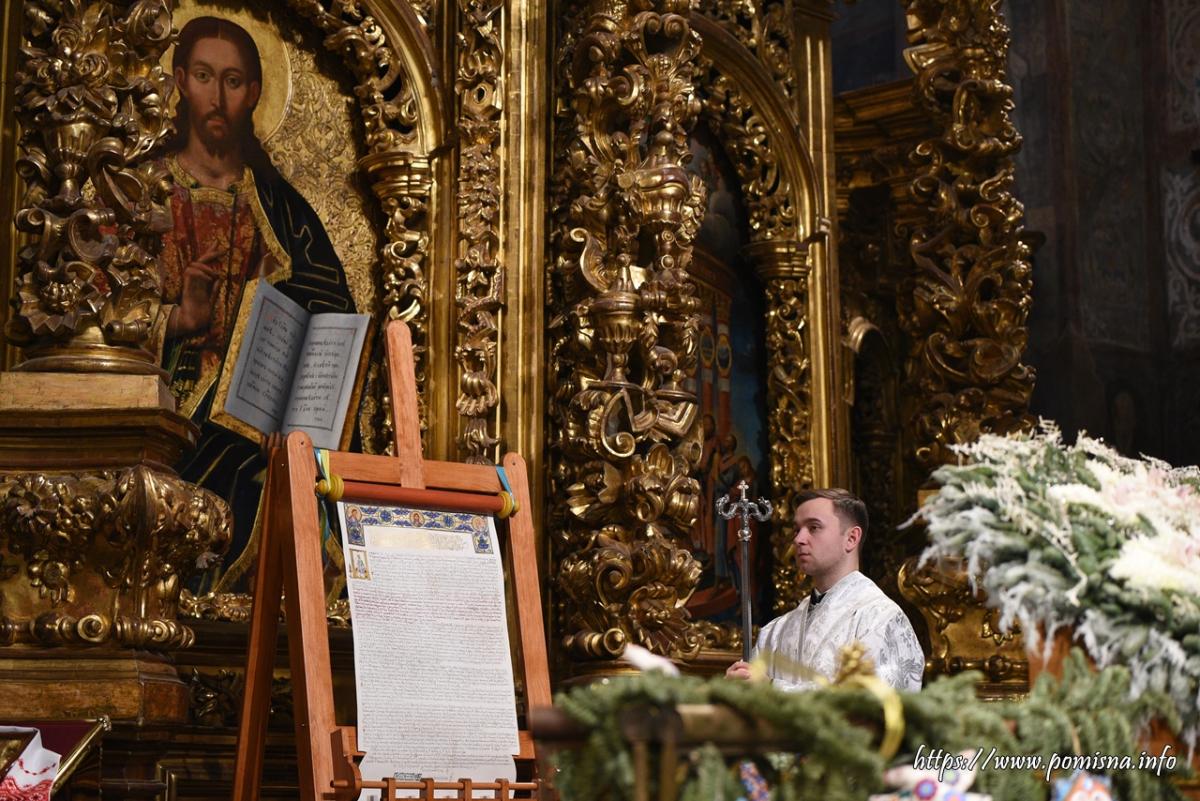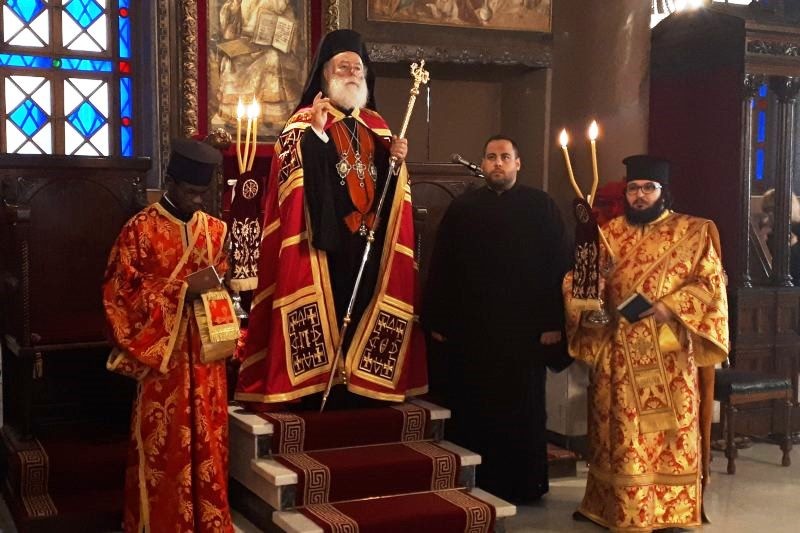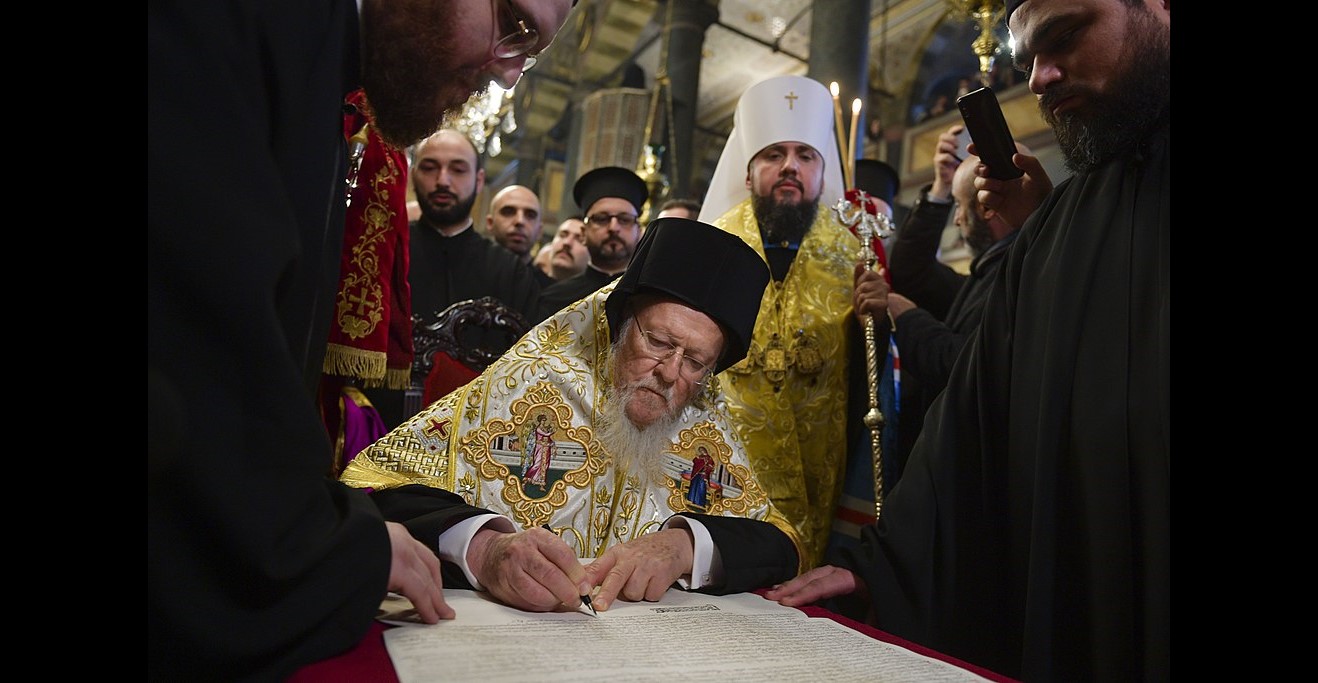A new poll shows that 48.8 percent of Ukrainians identify with the Orthodox Church of Ukraine while only 14.2 percent say they are followers of the Moscow Patriarchate Church in Ukraine. 16.3 percent say they’re Orthodox without identifying a jurisdiction, 4.3 percent identify as atheists, and 4.9 percent are followers of other confessions.
This poll reflects the fact that while the number of parishes still part of the Moscow Patriarchate’s organization is still very much larger than that of those affiliated with the OCU, the number of participants in the former is much smaller than in the latter.
The survey also found that 64.5 percent consider the tomos or grant of autocephaly as sufficient for the development of an independent Ukrainian church and that the grant should not be rejected, while 8.8 percent disagree and call for restoring the Ukrainian Orthodox Church of the Kyiv Patriarchate. Perhaps significantly one in four did not answer this question.
As to the impact of autocephaly, 50.6 percent of those queried said it unified society, while 30.5 percent said on the contrary that it is divisive. Again, a large share did not answer – 18.9 percent or nearly one in five.
Yesterday, in another Ukrainian church development likely to have an impact on the shift of parishes and bishoprics from the Moscow church to the OCU, the Metropolitan Ioann of Cherkasy and Chyhyryn of the OCU announced that from now on each parish will keep a list of members on the basis of declarations by them.
That list will not be used to exclude anyone who wants to take part in religious services, but it will, the metropolitan said, determine who will be able to vote on the affiliation of the parish. As a result, the compilation of these lists is likely to become a new flashpoint in the fight between the OCU and the Moscow church.
In neighboring Belarus, there was also a development that will affect both church life and political affairs. A group of activists has prepared a recording of 150 religious songs in Belarusian and distributed it to the roughly 3,000 Orthodox, Roman Catholic and Protestant parishes in that country.
“In the majority of Orthodox and Protestant churches of Belarus and also in certain Catholic ones the Belarusian language is not heard,” the organizers who call themselves the Belarusian Christian Hit group say. “This makes the Christian community liable to be affected by Russian propaganda and weakens the independence of Belarus.”
The group’s vice president, Pavel Severinets says that the idea for collecting, recording and distributing the songs in Belarusian arose because he and his colleagues had heard in many churches people say that “in Belarus there never was any order. European is anti-Christian. So let Putin come and establish order.”
It is essential to counter this “dangerous tendency” and to show people that “80 percent of Belarusian history over a thousand years is Christian.” Moreover, he continues, they need to know that “Belarus built powerful states based on Christianity and that they do no need to seek salvation from any tsar Putin.”
“This political aspect pushed us to carry out the project,” Severinets says. “There exists a danger not only in the Russian Orthodox Church. Even in Roman Catholic and Protestant churches today one can meet people who want the arrival of Russia. This is,” he concludes, “very dangerous.”
Read More:
- Implementation of Ukrainian autocephaly may be first flashpoint in Zelenskyy era
- Kyiv says 506 parishes have shifted from Moscow Church; Moscow claims only 61 have
- Russian Orthodox Church: Performance of song about nuking US in St. Isaac’s Cathedral ‘in bad taste’
- Rash of arson attacks on Moscow Churches in Ukraine directed from Russia – SBU
- 38 of the 46 Ukrainian Orthodox churches in Crimea forced to close by Russian occupiers
- Despite official harassment, OCU’s only church in Russia holds on
- Donbas occupiers doing to Ukrainian Church what they accuse Kyiv of doing to Moscow one
- With Donbas occupation, Russia brought religious persecution alien to Ukraine: report
- Russification through the church
- Religious persecution continues in occupied Donbas
- Pro-Russia Militants in Occupied East Ukraine Torture Protestant Pastor To Convert To Russian Orthodox Church
- Chronicle of terror: Religious persecution by pro-Russian militants in east Ukraine
- Mercenaries in Donbas persecute “non-Orthodox” Christians
- Four evangelical Christians executed by pro-Russian terrorists for ‘sectarianism and treason’
- STATEMENT of Heads of Evangelical Protestant Churches of Ukraine on religious persecution in the Donetsk and Luhansk Oblasts
- Crimea and religious freedom





